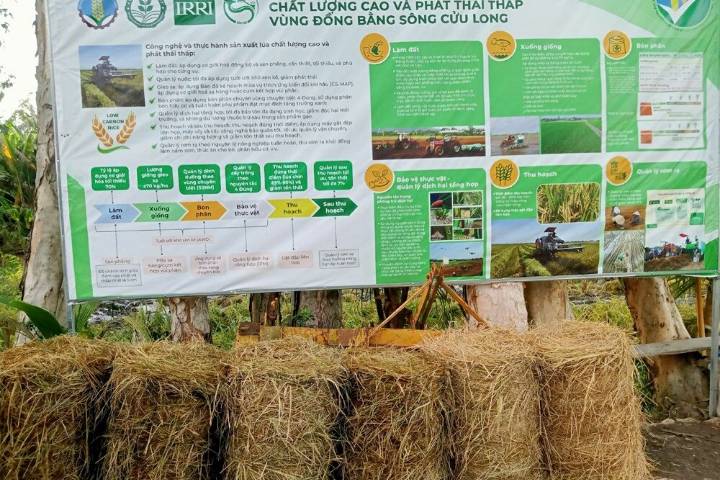On the afternoon of April 8 in Can Tho, the Ministry of Agriculture and Environment (MAE), the International Rice Research Institute (IRRI), and the Vietnam Rice Industry Association (VIETRISA) jointly organized a forum on strengthening the rice straw value chain in support of the implementation of the “One Million Hectares High Quality and Low-Carbon Rice in the Mekong Delta” Project.
The Mekong Delta accounts for about 50% of Vietnam's total rice output and 90% of its rice exports, which is vital in ensuring national food security. However, the region's rice sector faces mounting challenges, including increasing productivity, maintaining quality, reducing emissions, and adapting to climate change.
At present, up to 70% of rice straw after harvest is burned, while only around 10% is reused. Straw burning not only wastes valuable resources but also pollutes the environment and harms public health.
 Mekong Delta actively implements low-emission rice cultivation model
Mekong Delta actively implements low-emission rice cultivation modelAccording to Mr. Le Thanh Tung, Standing Vice Chairman of the Vietnam Rice Industry Association, the One Million Hectares Rice Program aims to reorganize production along value chains, promote circular agriculture, and adopt technologies to enhance agricultural value and reduce greenhouse gas emissions.
Proposed solutions include mechanized straw collection, the use of technology for drying, composting, building material production, mushroom cultivation, and bioenergy generation—all aimed at maximizing the use of agricultural by-products and creating new value-added opportunities.
The forum also emphasized the need to develop a digital database and information system for technologies supporting circular agriculture, particularly for rice production in the Mekong Delta. In addition, the project should promote cost-effective, socially beneficial, and environmentally sustainable technologies for straw processing.
At the same time, localities are encouraged to implement models suited to their actual conditions, helping to increase farmers' incomes, promote the sustainable development of the rice industry, and fulfill Vietnam's climate commitments.